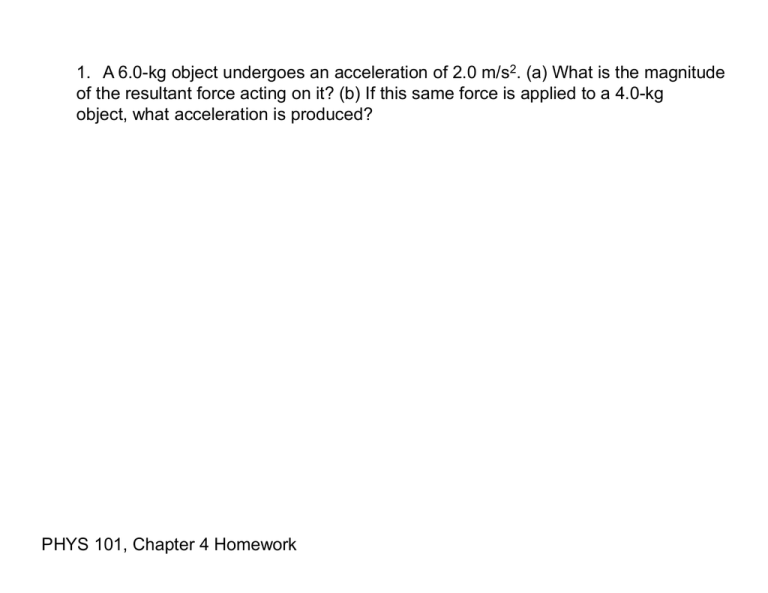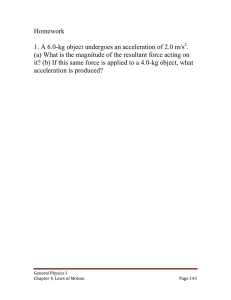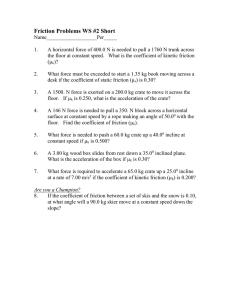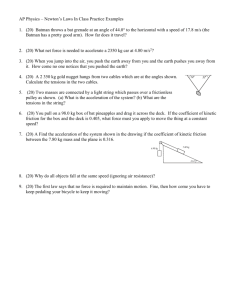1. A 6.0-kg object undergoes an acceleration of 2.0 m/s
advertisement

1. A 6.0-kg object undergoes an acceleration of 2.0 m/s2. (a) What is the magnitude of the resultant force acting on it? (b) If this same force is applied to a 4.0-kg object, what acceleration is produced? PHYS 101, Chapter 4 Homework 2. A freight train has a mass of 1.5 X 107 kg. If the locomotive can exert a constant pull of 7.5 X 105 N, how long does it take to increase the speed of the train from rest to 80 km/h? PHYS 101, Chapter 4 Homework 3. A boat moves through the water with two forces acting on it. One is a 2,000-N forward push by the water on the propeller, and the other is a 1,800-N resistive force due to the water around the bow. (a) What is the acceleration of the 1,000-kg boat? (b) If it starts from rest, how far will the boat move in 10.0 s? (c) What will its velocity be at the end of that time? PHYS 101, Chapter 4 Homework 4. Two blocks are fastened to the ceiling of an elevator as in this figure; the mass of each is 5.0 kg. The elevator accelerates upward to 2.0 m/s2. Find the tension in each rope. PHYS 101, Chapter 4 Homework 5. The block in this figure has a mass of 5 kg. The inclined plane has an angle of θ=30⁰. The coefficient of static friction is 0.2; the coefficient of kinetic friction is 0.1. What must Fup be in order for the block to remain in place? If Fup=55 N, what is the acceleration of the block? PHYS 101, Chapter 4 Homework 5. The block in this figure has a mass of 5 kg. The inclined plane has an angle of θ=30⁰. The coefficient of static friction is 0.2; the coefficient of kinetic friction is 0.1. What must Fup be in order for the block to remain in place? If Fup=55 N, what is the acceleration of the block? PHYS 101, Chapter 4 Homework 6. This figure shows a block suspended by two ropes. The ropes are attached to the ceiling at an angle of θ=45°. If the mass of the block is 10 kg, what is the tension in the rope on the left? PHYS 101, Chapter 4 Homework 7. A dockworker loading crates on a ship finds that a 20-kg crate, initially at rest on a horizontal surface, requires a 75-N horizontal force to set it in motion. However, after the crate is in motion, a horizontal force of 60 N is required to keep it moving with a constant speed. Find the coefficients of static and kinetic friction between crate and floor. PHYS 101, Chapter 4 Homework




